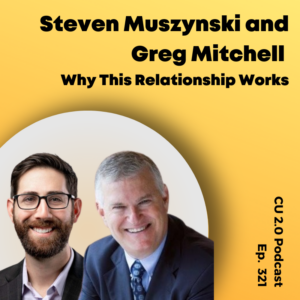In a very few minutes—under three—on a slow Friday afternoon, I opened and funded a banking account with Lili. Lili is a startup that has won a lot of buzz (plus $25 million in venture funding) in the space of a few short months.
Read all about Lili here and here and here.
Finextra describes Lili this way: “Lili is one of several startups targeting a huge and fast-growing market: there are nearly 60 million freelancers in the US and Covid-19 has seen 12% of the workforce going solo this year.
Lili is offering these people an app that combines banking services with real-time expense tracking, tax tools, and financial insights.”
Lili, it is said, already has 100,000 users.
Frictionless Banking Is Today’s Must-Have
Think frictionless, niche, and something that sets out to solve an obvious problem (tracking tax deductible expenses). Lili wants not to be all things to all people, but to target a specific segment with a problem. That is brilliant new business development strategizing.
What users get is a checking account, a Visa business debit card, free ATM withdrawals at 32,000 machines in the US and Puerto Rico, and Lili can be added as a payment instrument to Apple Pay and Google Pay. It can also be linked to Venmo and PayPal.
Lili supports MRDC.
No account fees. No minimum balance.
Navy Federal Is in With Lili
Lili can be linked to accounts at these banks: Bank of America, BB&T, Capital One Financial, Charles Schwab, Citigroup, Citizens Financial Group, Fidelity, JPMorgan Chase & Co, Navy Federal, PNC Financial, Services Group, SunTrust Banks, TD Bank, U.S. Bancorp, USAA, Wells Fargo.
Do note: Navy Federal, the first credit union enrolled in Apple Pay, already has hopped aboard this train.
Enough of the commercial for Lili. The threat it represents to legacy financial institutions is real. And freelancers, just coincidentally, are a huge and growing economic segment (the expanding gig economy amid Covid-19 labor force disruptions). That could be a market that savvy, nimble credit unions target. But so far only Navy Federal seems tuned in.
Look, I am not saying that Lili will become my primary banking app. It will not. But as a supplemental tool for buying stuff that can be expensed as tax deductions, it is neat and easy to use. Any freelancer who has ever moaned about accounting expenses around tax day wants an app like this.
Account Opening Smooth as Silk
But for credit unions maybe the bigger takeaway is how shockingly simple and quick it was for me to open an account. Really, just a SSN, and we were off to the races.
Smooth as silk.
And still about half of credit unions want a branch appearance for new account openings.
Lili builds in various safety nets for itself. For instance: “You can spend up to $3,000 per day and withdraw up to $500 in cash per day, including ATM fees. On a monthly basis you can spend up to $15,000 and withdraw up to $3,000.”
As for MRDC, here are the limitations: “Your account must receive a total of $200 or more per month and be at least 30 days old in order to access check deposits.
Max amount per check: $2,000
Max amount per month: $6,000
Max checks per day: 2
Max checks per month: 6.”
With direct deposit, these are the limits:
$15,000 per Deposit
$50,000 Max 30-day deposit limit
Will I be a happy Lili user? Will I in fact actually use it much at all? Check in with me six months from now.
But the real point isn’t about me and Lili, it’s about credit unions and their stumbles. Specifically, high-friction account opening and digital tools that often are cumbersome, clunky, and simply hard to use.
Credit unions—member owned financial institutions—should be in the prime, pole position to out-maneuver fintechs and challenger banks. And when they aren’t, it’s their own doing (or not doing).
Learn from The Challengers
Here’s my challenge to you: Sign up, right now, with a new style financial institution (or Chime or Axos Bank or VaroMoney or whatever strikes your fancy). Then ask yourself: what are they doing that we should be doing in our credit union, and why aren’t we doing it?
And then start doing it.
Another opportunity to learn: the CU 2.0 Credit Union–Fintech Mastermind helps current and aspiring leaders share and solve problems collaboratively. The group meets monthly to discuss industry challenges, identify emerging opportunities, and share insight and experience about how to ensure the continued success of their credit unions and careers.




